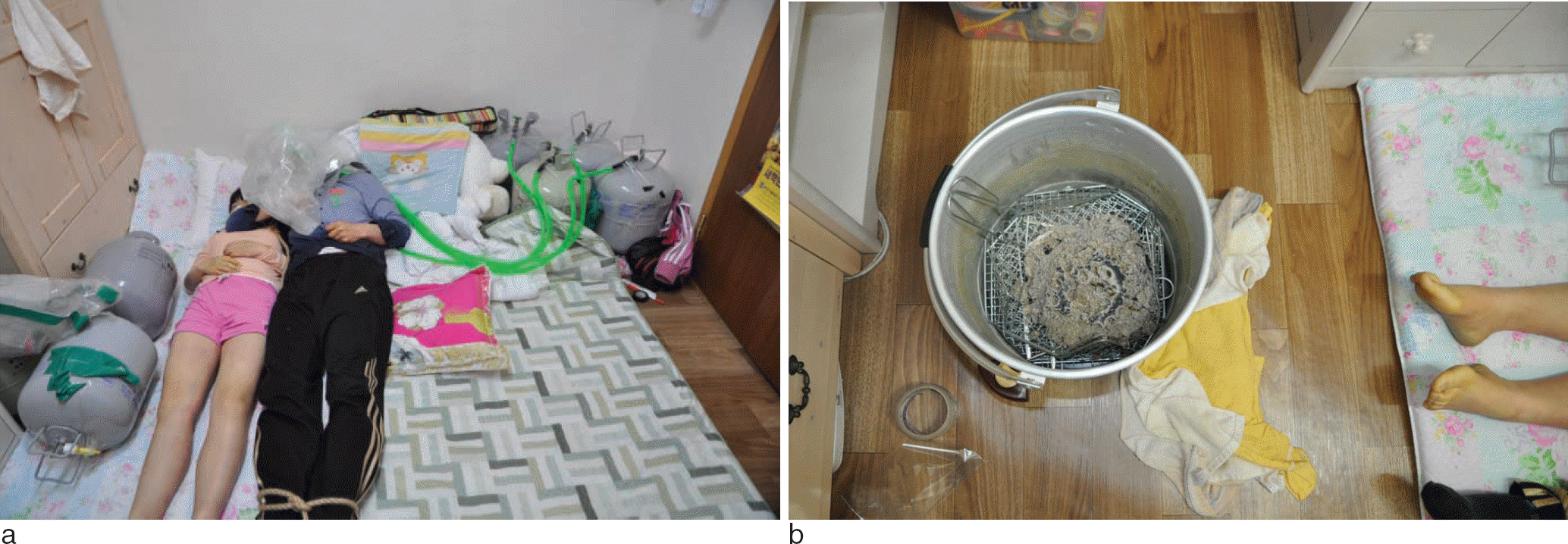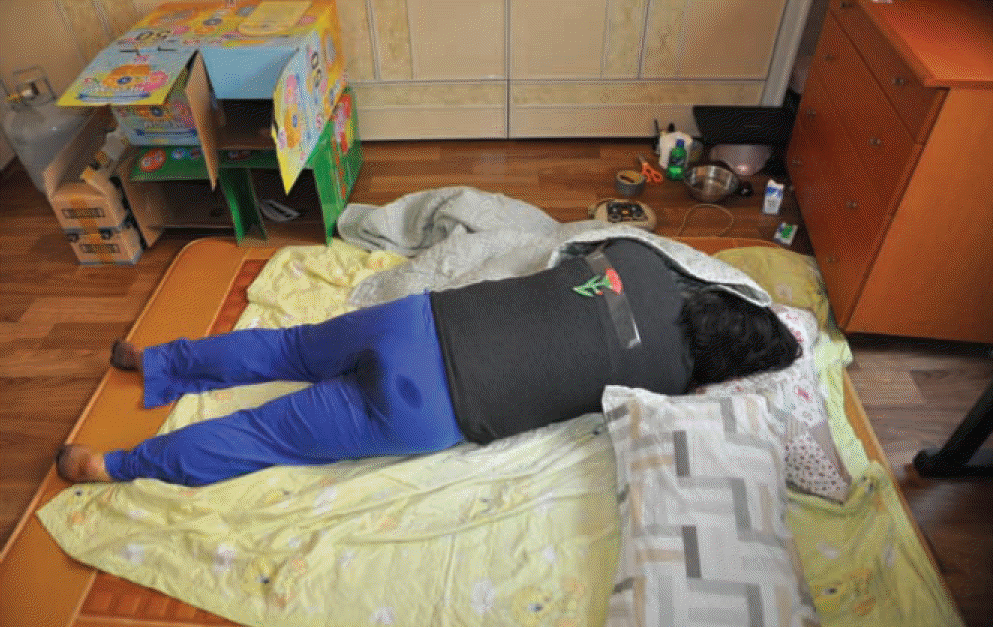Abstract
A 39-year-old man, his 35-year-old wife, and their 13-year-old daughter were found dead in their home. The man and his daughter were found lying in her bedroom, with his head wrapped in a plastic bag connected to four helium gas cylinders by green polypropylene tubes. Fragments of the burnt ignition briquette were found in the bucket located at her feet. His wife was found in a decomposed state lying on her right side in her bedroom. Autopsy findings for the man were unremarkable except for cherry pink lividity; the blood carboxyhemoglobin concentration was 73%. Autopsy findings were unremarkable for the woman as well, except for a few petechial hemorrhages and conjunctival congestion. The daughter showed no definite abnormalities; howev-er, her blood and lung contained helium gas. The deceased man's suicide note, evidence gathered at the scene, and postmortem examination revealed that this was a case of dyadic death.
References
1. Ogden RD, Wooten RH. Asphyxial suicide with helium and a plastic bag. Am J Forensic Med Pathol. 2002; 23:234–7.

2. Humphry D. Final exit: the practicalities of self deliverance and assisted suicide for the dying. 3rd ed.New York: Dell Publishing;2002.
3. Lim HS, Hahm KW, Kang HW. Observation of 17 asphyxial suicides by helium gas. Korean J Leg Med. 2013; 37:78–83.

4. Milroy CM. The epidemiology of homicide-suicide (dyadic death). Forensic Sci Int. 1995; 71:117–22.

5. Ogden RD. Observation of two suicide by helium inhalation in prefilled environment. Am J Forensic Med Pathol. 2010; 31:156–61.
6. Auwaerter V, Perdekamp MG, Kempf J, et al. Toxicological analysis after asphyxial suicide with helium and a plastic bag. Forensic Sci Int. 2007; 170:139–41.





 PDF
PDF ePub
ePub Citation
Citation Print
Print




 XML Download
XML Download